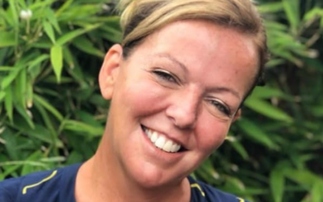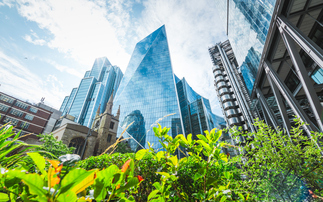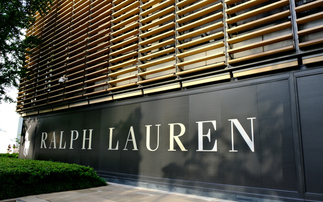The CBI deputy-director general reflects on a decade when business engagement with the environment was transformed for the better, just as trust in corporates was eroded
Josh Hardie is deputy director-general for policy and campaigns at the CBI.
Josh joined the CBI in 2016 to head up the business group's policy development and influencing work.
Before joining the CBI he was group director for corporate responsibility at Tesco, where he led on the led on the integration of social and reputational issues into the retailer's business strategy.
Josh has also held executive roles at EdComs Ltd creating strategies and campaigns for high profile clients, including Sky, Google, the Army, the NSPCC, and many government departments.
Where were you in 2007?
I was at Tesco at the time, and over time one of my areas of focus was on Tesco's footprint and wider environmental concerns.
It was very interesting watching these trends from the Tesco perspective, and how Tesco looked at it both in terms of social impact and the almost unfailing duty to reduce its impact, but also from the customer dynamic and how you actually change customer behaviour.
I think it has also been a decade of major shifts for CBI members. In 2008 we did our first report which was called 'Everyone's Business', and that feeling that you could get businesses round the table and they would really engage in the issue and look across the economy was starting to emerge.
So the moves from business have been very good, and still carry on. With government, clearly there have been notably successes. The 2008 Climate Change Act was ground-breaking. I think we can be pleased with the influence we have had on the EU ETS and the Paris Agreement. I think there is lots for the UK government to be pleased about. In the heydays when things were really moving I think it did feel like a genuine partnership.
I think also when you look at consumers it's been interesting. On the one hand, there's no question there's been a dramatic shift in terms of consumer awareness. You can point to some very clear areas of behaviour change, for example recycling or tech and measurement. But it's been tough. During this decade we have also had the financial crisis and austerity. That has quite naturally changed people's priorities. But I don't think of it as a case of things getting jolted off course, because I think that's life. Whatever decade you pick there are going to be seismic events, the challenge and the opportunity is to find ways of keeping business government and society engaged as they occur.
How have you seen the relationship between business and corporate responsibility develop?
Swings and roundabouts! On the one hand if you look at the journey businesses have been on in terms of understanding societal expectations and understanding social impact, the last decade I think has seen really significant progress. Businesses' sustainability policies I think in many ways have been the flagbearer for that.
Partly it's been down to the understanding that the way you tackle environmental impacts in a business isn't just a CSR activity. It's not just about tree planting, it's about looking root and branch at your business activities. So you've got to look at the energy being used, you've got to look at the way you transport your goods, you've got to look at your production. So in that sense if you are a business that is going to look at this issue it is a whole business conversation.
But the trust between business and society is not as strong as it has been in decades past. That's a cultural thing - it's true of politicians, it's true of the media, it's true of the relationship between society and institutions generally. But businesses are very alert to that and very keen to understand how we can a) improve our impact and b) talk about what the point of us is in a more effective way. That's what I mean by swings and roundabouts - there's been a lot more progressive action, but our environment and that relationship still needs real work.
How do you propose to address that shortfall?
We have got to be absolutely clear, the first thing comes with understanding society's expectations and making sure business behaviour meets that. And the vast majority of businesses are in that position, but when you get instances of individual businesses behaving badly that damages trust in everybody.
Once you have got good behaviour in place, communication matters. And it is very interesting the way businesses talk. And too often businesses talk in a way that people don't understand. Whether that is about topics like energy, or whether it is about topics like what the business is there for. There is a real challenge for businesses to make what they do and the topics they talk about relevant, accessible, engaging and understanding, and to not talk in business speak all the time.
So if you put those two things together - a clear understanding of expectations and of meeting them, and a voice that people are interested in and understand, I think those are two of the cornerstones of building trust.
What is your biggest achievement of the past 10 years, personal and professional?
I think the shift in businesses not asking the question 'what's the benefit to us to act on this social issue', to the belief that actually, this is what business is here to do. And we as business are part of this challenge, and we are going to lead the way on this challenge.
That genuine commitment to trying to solve the problem is for me the most satisfying thing, because that's not so clear and not so comprehensive in many areas as it is in energy and climate change.
What are the core challenges facing the shift towards green business at the moment?
I think the biggest challenge at the moment is simply long-term certainty in the policy environment. It has slipped back, and that doesn't help. There's enough uncertainty that's outside of our control at the moment - let's control what we can control.
The second one is slightly more complicated, and that is how we have an honest conversation about cost. Budgets are tight. Too many people in society are struggling. We know that and absolutely recognise that. At the same time, if we want to push forward on a greener agenda we have to be able to have an open conversation about what that does and doesn't cost.
You see other countries such as Germany doing that rather well - we need to be able to have that conversation.
Paint us a picture of the kind of world you would like to be living in in 2027
For me, the thing that gets me excited is the technological aspect. I would expect and I am confident business will continue on the journey around their own emissions. Where I would love to see real innovation, real change, is in home and transport. The things that for us as consumers is our everyday life. There are tools we can engage with because they are interesting, because they help us live our lives better, because they are convenient, because they make things easier for us, but also because they help us to live more environmentally friendly lives.
This is not just about how we drive greater change in sustainability. It's about what sort of future economy we want, what the UK is going to be brilliant at when we have left the European Union and we are doing trade deals abroad. We need to understand what our competitive advantage is going to be. And it should be in those areas.
Josh Hardie will be speaking at the BusinessGreen Leaders' Summit on November 9th.
This interview is part of a series of interviews, published in association with Greenhouse PR, to mark BusinessGreen's 10th anniversary. The full series, including interviews with Christiana Figueres, Lord Stuart Rose, and Lord Stern, will be published on the day of the Summit.
You can book your place at the summit here.










